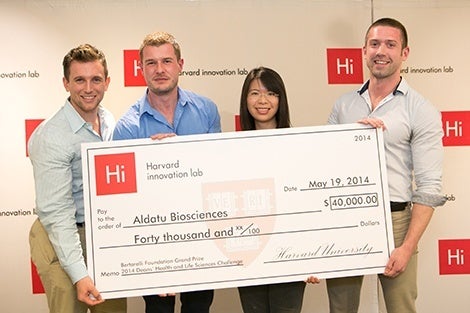Related Topics
Dissecting the power of a historic vaccine
An international team unravels the genetic basis for the protective effects of the RTS,S malaria vaccine — the first candidate vaccine to win approval by European health officials. October 21, 2015 -- Last month, the public health community…
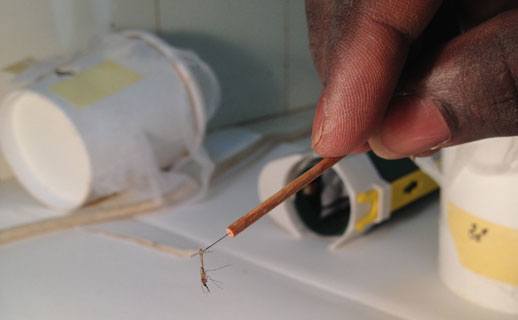
Genes linked with malaria’s virulence shared by apes, humans
For immediate release: October 12, 2015 Boston, MA ─ The malaria parasite molecules associated with severe disease and death—those that allow the parasite to escape recognition by the immune system—have been shown to share key gene segments with…
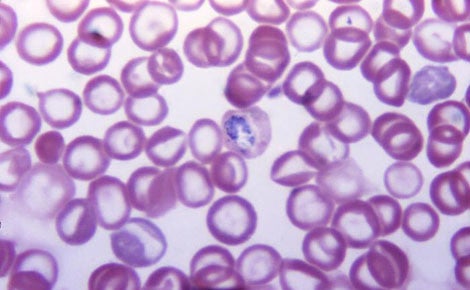
Breastfeeding may expose infants to toxic chemicals
For immediate release: August 20, 2015 Boston, MA ─ A widely used class of industrial chemicals linked with cancer and interference with immune function—perfluorinated alkylate substances, or PFASs—appears to build up in infants by 20%–30% for each month…

Off the Cuff: Making the case for childhood immunization
[Spring 2015] Kasisomayajula “Vish” Viswanath, professor of health communication, Department of Social and Behavioral Sciences Q: There has been an uptick of measles, whooping cough, and other infections in the United States. Many of these infections, which are…
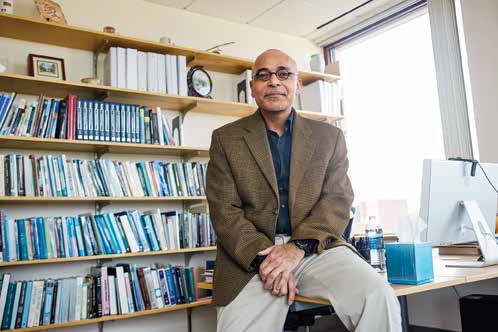
Newly found genes affecting allergies and asthma could provide new drug targets
For immediate release: February 18, 2015 Boston, MA – Allergies affect 30% of people around the world and asthma afflicts 10% of all children. Now, a new study has uncovered more than 30 genes that have strong effects on…

Dealing with parents’ mistrust of vaccines
As the Disneyland measles outbreak continues to make headlines and fuel public debate, health professionals seek more effective ways to convince parents who mistrust vaccines to get their children vaccinated, according to Barry R. Bloom, Harvard University Distinguished…
On the Ground: Alumnus Battles the Nightmare in Liberia
As the deadly infection rages through West Africa, Harvard Chan faculty, students, and alumni are waging a counterattack: on the ground, in the lab, on the humanitarian front, and in the political sphere. A special report by Harvard…

Off the cuff: What can microbes teach us about cancer?
[ Fall 2014 ] Wendy Garrett, Associate Professor of Immunology and Infectious Diseases Wendy Garrett specializes in studying the human gut— the part of our anatomy that carries the greatest number of microbes—and the possible links between these…
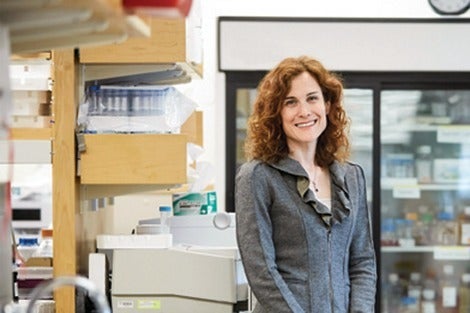
Ebola containment requires international collaboration
Pardis Sabeti, associate professor in the Department of Immunology and Infectious Diseases at Harvard School of Public Health and senior associate member of the Broad Institute, supervised a recent study that traced the Ebola epidemic in Sierra Leone to…
HIV drug resistance test earns top honors at Deans’ Challenge
May 28, 2014 — HIV is now considered a chronic but manageable infection with the proper medication, but 10% of patients every year develop resistance to the drugs they are prescribed. Now, an affordable and quick test for…
